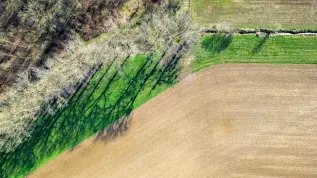
Non-English-language literature is the primary source of knowledge for nature and biodiversity policy makers in 37 countries surveyed by an international team of scientists. Publishing houses should take care of translating articles into many languages, the authors of the study believe.
The results of the study were published in Nature Sustainability (https://www.nature.com/articles/s41893-023-01087-8).
"The analysis of non-English-language articles made me and the whole team realize how much valuable scientific knowledge is being missed by scientists who only focus on searching for information in English', admits one of the authors of the paper, Dr. Szymon Drobniak, an evolutionary biologist from the Jagiellonian University and the University of New South Wales (Australia). 'On the other hand, by focusing only on publications available in local languages, a broader perspective and a synthetic vision of available knowledge is easily missed. Meta-analyses necessary to create reports on nature conservation and biodiversity are mainly available in English'.
The study shows that 65% of the literature used by officials who prepare reports on nature conservation and biodiversity is written in the local language.
In their work, the scientists wanted to answer the question to what extent the authors of reports on nature conservation and biodiversity in 37 countries, located on all continents, use studies in English, and how much they rely on literature published in their local languages. 'It turned out that the local languages play such a significant role that would be advisable to introduce systemic solutions to support the translation of papers published in English into many languages', says Szymon Drobniak.
He adds that the authors of the analysed reports admit that even if they can read in English, they often have problems understanding the content.
'When we asked about the reasons why report authors did not use English-language literature, they most often said that it was difficult to read or incomprehensible. But they also admitted that using English-language literature would improve the quality of the report', reports Drobniak.
That does not mean that non-English-language sources are less valuable, the biologist reserves.
'Local literature is usually very valuable descriptive papers that concern, for example, a specific species or local nature conservation practices. But the lack of combining this knowledge with English-language analyses dilutes the knowledge', says Drobniak.
The scientist admits that in his previous research work he expanded the search for scientific information about amphibians to include literature published in French, Spanish, Russian, Swedish, Japanese and Chinese.
'It turned out that the scope of information about amphibians expanded by about 30 percent. We also obtained data on amphibian species that were not mentioned in the English-language literature. In other words, non-English-language science is full of valuable data that does not get into the mainstream', says Drobniak.
The authors of the publication in Nature Sustainability () have translated its abstract into 21 languages. They hope that this will start a discussion on the importance of making non-English-language publications available and facilitating the use of scientific texts published only in English. Researchers hope that publishing houses that have built networks of connections with various communities of scientists and policy makers (including officials who prepare reports) will also join the discussion.
'A systemic solution is needed here. If online publishing houses invested in automatic translations of abstracts of scientific publications into many languages, it would be very valuable for the development of science and for the democratisation of its use in non-academic circles', Drobniak concludes. (PAP)
PAP - Science in Poland, Urszula Kaczorowska
uka/ zan/ kap/
tr. RL













